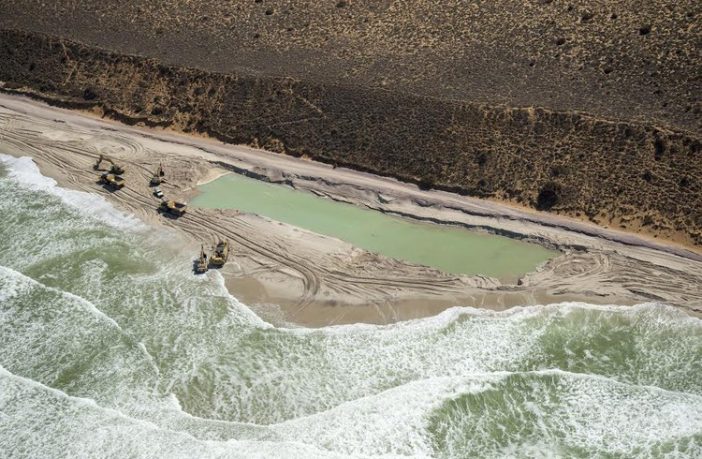- Yesterday, the South African High Court held that a series of defamation lawsuits brought by Australian mining company Mineral Commodities Ltd (MRC) and its local subsidiary, against six environmental activists, is an abuse of the legal process.
- MRC and its subsidiary sued the defendants for a total of ZAR14.25 million (approximately USD 980 000).
- In her judgment, Deputy Judge President Patricia Goliath found that SLAPP (Strategic Litigation Against Public Participation) was a viable defence for the activists and public interest lawyers against the mining companies’ claims.
“SLAPP suits are still a relatively new phenomenon in most jurisdictions. Essentially its aim is to silence those challenging powerful corporates on issues of public concern. In essence the main purpose of the suit is to punish or retaliate against citizens who have spoken out against the plaintiffs.” (par 39)
The lawsuits arose from statements made by two community activists, Davine Cloete and Mzamo Dlamini; two attorneys at the Centre for Environmental Rights, Christine Reddell and Tracey Davies; private attorney Cormac Cullinan; and social worker John Clarke.
Cloete, Reddell and Davies, speaking at the University of Cape Town’s Summer School in January 2017, had criticised MRC subsidiary Mineral Sands Resources (MSR) for environmental destruction and non-compliance with mining and environmental laws, at its Tormin mine on the West Coast. In 2015, a massive cliff collapse at the Tormin mining site raised the alarm of environmental activists, scientists and authorities about this operation. Despite this, MSR has since received approval from the Department of Mineral Resources and Energy significantly to expand its operations on the West Coast, and appeals against the expansion has been rejected by the Minister of Environment, Forestry and Fisheries.
Dlamini, Cullinan and Clark had criticised the conduct of MRC and its chief executive, Mark Caruso, in relation to MRC’s proposed titanium mining operation at Xolobeni on the Wild Coast. The Amadiba community has opposed the mine at Xolobeni for more than a decade. Amongst the casualties of this contestation is anti-mining community activist Sikosiphi Bazooka Rhadebe, who was murdered by unknown assassins at Xolobeni in March 2016. No-one has yet been arrested for his murder.
The defendants raised a special defence to the defamation claims, by seeking to introduce SLAPP as an abuse of the court process, and a violation of the Constitutional right to freedom of expression. The court agreed with the defendants:
“It is trite that legal process is abused when it is used for a purpose other than that for what it has been intended or designed for. Corporations should not be allowed to weaponise our legal system against the ordinary citizen and activists in order to intimidate and silence them. It appears that the defamation suit is not genuine and bona fide, but merely a pretext with the only purpose to silence its opponents and critics. Litigation that is not aimed at vindicating legitimate rights, but is part of a broad and purposeful strategy to intimidate, distract and silence public criticism, constitutes an improper use of the judicial process and is vexatious. The improper use and abuse of the judicial process interferes with due administration of justice and undermines fundamental notions of justice and the integrity of our judicial process. SLAPP suits constitute an abuse of process, and is inconsistent with our constitutional values and scheme.” (par 66) (our emphasis)
Parties to the matter may still elect to appeal the judgment in whole or in part, and the defamation trials may still proceed in due course. However, as it stands, DJP Goliath’s judgment means that, when sued for defamation in a SLAPP suit, activists in South Africa can successfully defend such a lawsuit by relying on the SLAPP nature of such a lawsuit.
“We welcome this judgment as a clear signal from the courts that our law provides protection for civil society activists who engage in robust debate and free expression in the course of their activism,” says Leanne Govindsamy, Head of Corporate Accountability & Transparency at the CER. “This judgment makes it clear that, in South Africa, corporations will not succeed in using SLAPP suits to silence criticism about their environmental impacts from environmental activists.”
“As the environmental and climate justice movement grows in response to the climate crisis and ecological breakdown, environmental activists who criticise corporations that contribute to climate change and destruction of biodiversity are facing growing threats and intimidation. Although there is still a lot to be done to protect activists from threats and intimidation in South Africa, as the recent murder of anti-mining activist Mam Fikile Ntshangase in KwaZulu-Natal in October 2020 so painfully reminds us, it is a relief that our courts recognise and are willing to protect the crucial importance of civil society activism for environmental justice,” says Melissa Fourie, CER Executive Director.
The CER and the defendants are deeply grateful to the legal team (the Webber Wentzel pro bono team, and counsel Steven Budlender SC, Geoff Budlender SC and Sha’ista Kazee) for their dedication to this case over the past four years, and to our funders and partners for their ongoing support and solidarity. Without this backing, the SLAPP suits would have had the intended “chilling” effect, as has been the case for so many other activists.
Author: GBA News Desk
Source: Centre for Environmental Rights
For more about SLAPP, visit Asina Loyiko: United Against Corporate Bullying











